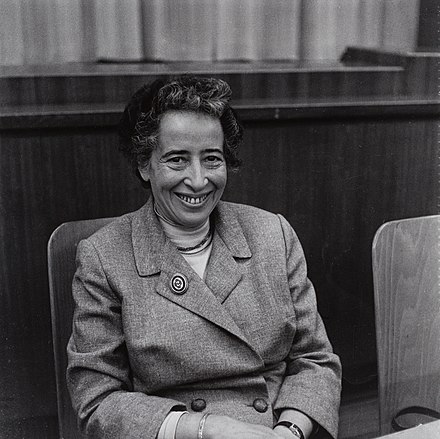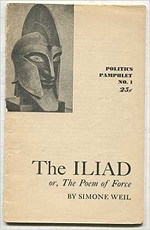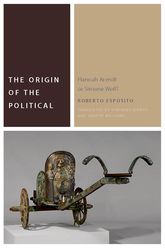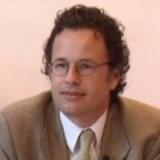Two Philosophers Facing War
Carlos HoevelHannah Arendt and Simone Weil, probably the two greatest women philosophers of the 20th century, left us perhaps the deepest and the most opposing reflections on war. Certainly, both had an important point in common: they both believed that understanding the phenomenon of war is crucial to understanding the profound truth of society and the human condition. In addition, although they experienced the war from very close, they were, nevertheless, able to take enough distance to observe it, without being swept away by the wave of hatred and suffering that almost inevitably overwhelms its victims. However, and despite these coincidences — to which should be added the fact that both saw Homer’s Iliad as the deepest meditation on war — Arendt and Weil diverged on how to put a limit to this terrible human tragedy.
Arendt on the “art of politics”
For Arendt, the differentially shocking element of modern warfare is what we are unexpectedly experiencing again with the war in Ukraine: that of “the possibility of the destruction of the world and the annihilation of human life.” But the war of annihilation is not, according to Arendt, exclusive to our modern atomic age. It is part of the tendency always contained in every war. In fact, the first great Western epic poem describes precisely the near-fatal character of this tendency in its stark account of the war of annihilation waged by the Greeks over Troy.
It is nonetheless possible for Arendt to find in the Homeric poem itself the exit door to this tendency.

In Arendt’s opinion, the Iliad is the first text in world literature that recognizes with astonishing objectivity the human value of the vanquished and therefore represents the first outline of the great Greek dream, tried more or less unsuccessfully in the polis and finally applied with success only by the Romans: that of gradually replacing war as annihilating violence by a political settlement. Hence, for Arendt, it is above all urgent to recover the art of politics, understood as the constant and tireless search for the most reasonable pacts and the fairest laws between the actors in the conflict, and art tragically forgotten by us, moderns – those dedicated to an irrational competition for the accumulation of power between individuals, factions, and States. The return of the ancient Greco-Roman ideal “of never annihilating but always expanding and extending new treaties,” thus constitutes for Arendt the only miracle that could save humanity from a total war with irreversible consequences.
Weil on the role of force & the “temptation to excess”

Very different is the look of Weil, who sees not only in the Trojan War but in every war a fatal mechanism in which a single hero dominates, unappealable and absolute: that of force and violence. “A moderate use of force,” Weil concedes, “is the only thing that would allow the mechanism to escape, would demand a virtue more than human, and as rare as remaining worthy in weakness.” In her opinion, once the war is unleashed, “the temptation to excess is almost irresistible… As relentlessly as force crushes, so relentlessly it intoxicates those who possess it or think they possess it. Nobody really owns it.”
Thus, “violence crushes those it touches. It ends up appearing external to the one who handles it and to the one who suffers. Then the idea of a destiny appears under which executioners and victims are equally innocent; winners and losers, brothers in the same misery. The vanquished is as disgraceful to the victor as the victor to the vanquished.” It is true that some “reasonable words are sometimes spoken in the Iliad — those of Thersites are reasonable to the highest degree, those of an irritated Achilles are also reasonable.” Yet in the end, according to Weil, “reasonable words fall into the vacuum.” In fact, Homer’s objectivity did not reverse the annihilation of Troy, nor did Rome’s legal wisdom prevent the total destruction of Carthage.
Weil: beyond “the art of politics”

That is why for Weil, unlike Arendt, the art of politics alone could not and will never really stop the war. Only one thing, according to her, is capable of defeating it: the transformation of the soul of the contenders. As happens when Achilles suddenly says: “nothing is worth to me what life is, even all the goods that Ilium is said to contain, the city so prosperous… Well, oxen, fat rams . . . but a human life can be conquered , once it has departed it is never reconquered.”
The awareness of the value of all human life, even that of the enemy, and the courage to give one’s own to defend it, constitutes, according to Weil, “the purest triumph of love, the supreme grace of wars.” That alone is the miracle that gives birth to “the friendship that rises to the heart of mortal enemies.” also making “the thirst for revenge for the dead son, for the dead friend disappear” and erasing “by an even greater miracle the distance between benefactor and supplicant, between winner and loser.”
Certainly, for Weil, “such moments of grace are rare in the Iliad” and in any war. In fact, “they always constitute a mystery,” of which “the gods are the authors” since they are the only ones capable of “truly moving the imagination of men.”

Contemplating such moments of courage and love in the midst of the horror of the current war in Ukraine, and any other war, is enough to make us feel, as Weil reminds us, “an acute nostalgia for all that force does and will perish. ”
Two Visions & a Third Possibility
Faced with the deepening of the brutality and inhumanity of war, it is difficult to decide which of the two paths proposed by both philosophers would be fairer to choose. Should we fight to return to the political path, as Arendt seems to encourage, putting a limit to violence through dialogue, negotiation, and treaties, even if these are unfair and imperfect? Or should we limit ourselves to valuing and acknowledging the individual acts of humanity, courage, and love that shine amidst the often-inevitable evil of war, as Weil seems to urge us?
Although perhaps there is a third possibility: that both visions illuminate one aspect of the truth and end up being, for that very reason, complementary. Certainly today it seems essential, as Arendt maintains, to return to the path of true politics, which is always for her also a return to the path of reason, objectivity, and truth. However, for this political path to be possible, it is also necessary, as Weil teaches us, to have a soul changed by grace: freed from the gravity of selfishness and endowed with the wings of love.
About the author
Carlos Hoevel is the Professor of History of Economic and Political Ideas, Business Ethics, and Philosophy of Economics at the Catholic University of Argentina in Buenos Aires. He is also Director of the University’s Center of Studies in Economy and Culture and of the Journal of Economic Culture.

This slightly expanded and newly translated article was approved by the author and first appeared in La Nacion (March 19, 2022); it is reprinted with the permission of both the author and his publisher.
4 Recommendations

